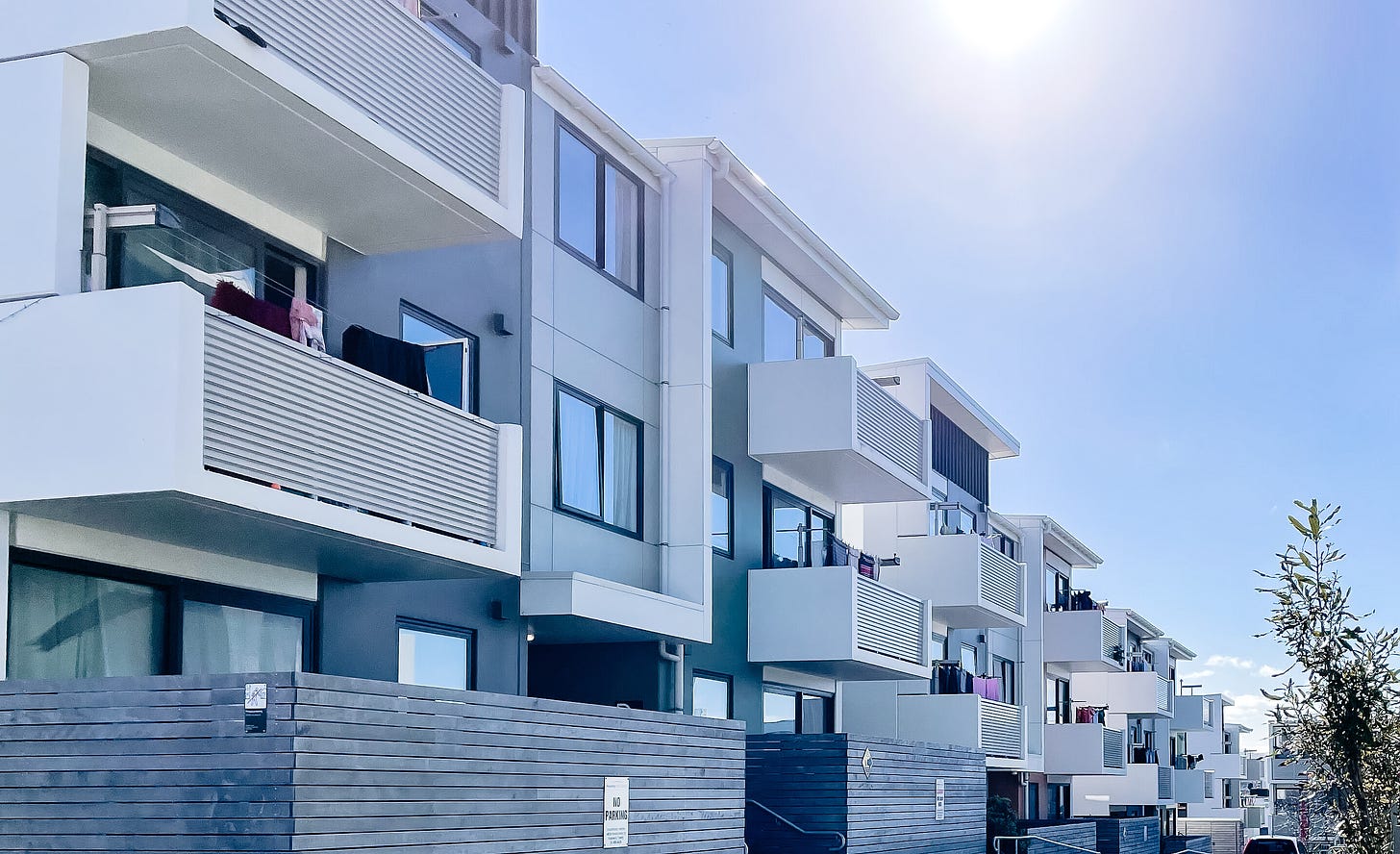
TL;DR: The election campaign took an ugly turn yesterday, and in completely the wrong direction. All three of the parties on track to win Government in 17 days time ramped up their policies to label and punish beneficiaries as undeserving bludgers.
Instead, they should have been proposing how to vastly increase the number of social houses in Aotearoa faster than our population is rising, and how to improve the healthiness, affordability and tenure security of our private rental stock. That’s evident in new research referred to in my interview in the podcast above with Arthur Grimes showing state house tenants are just as happy as home owners, and much happier than private tenants because private rentals are less secure, unhealthier and much too expensive.
Grimes said at least 25,000 new homes are required to catch up with past underbuilding, which has led to over 25,000 households now being on the public housing waiting list. Labour is promising to build 9,000 over the next four years, while National is promising an extra 3,000. If the social housing stock had kept up with population growth since 1991, there would be 42,000 extra homes.
Meanwhile, an extra 96,200 people just arrived in Aotearoa in the last year, with National and Labour promising to further loosen migration settings to boost the labour force competing with beneficiaries for jobs, pump up GDP, increase tax revenues and reduce Government borrowing.
Here’s Arthur’s comments on what’s required (bolding mine):
The public housing wait list is over 25,000. That's households. And most of those will involve children. And that's only the people who are in serious housing need, by definition, so that's a bare minimum. And while we've increased the number of public housing houses available in recent years, population has increased a lot over recent decades.
So it's absolutely critical that we increase the public housing stock faster than the population is increasing. And that's been a major problem in New Zealand where social housing…if it has been increasing, it's still been increasing more slowly than the population.
We haven't been building enough houses and haven't been for two decades at least. So this has been just an extraordinary problem in New Zealand of constraints on housing supply of all sorts, whether it's public housing, private housing, housing for rentals, housing for owner occupation. Successive governments and local governments have really been very, very poor in terms of ensuring the housing stock is increasing fast enough to house the population that we have and house them satisfactorily and house them at a price that they can afford, rather than being the most expensive in the OECD.
I think we've got to work out what our priorities are as a society. It's one of the most basic needs in Maslow's hierarchy of needs — shelter. And shelter is not something that you can import. You can't get it from overseas. It's something we have to provide ourselves. And so whenever we've got some kind of regulation law that's restricting our ability to increase the amount of shelter we provide, we've got to think, is what we're doing making people unable to meet their very, very basic need of shelter?
There needs to be a drastic change to the regulatory structure in terms of house building. It's extraordinary that we have protection of land for growing potatoes in favour of housing children. I just find that an extraordinary priority, that people would have that is better to grow potatoes than to house families with children. That just doesn't make any ethical sense to me.
But that's just one example. We have so many of these sorts of examples in New Zealand. And I think we've got to get our head around the idea that actually housing is just about the most basic need of anything. And we need to make sure that we have enough houses.
We have to understand that there are people who find it difficult to live in society. And that's the group in particular, for whatever reason, where public housing is absolutely critical because they're just not going to really successfully negotiate the private housing system. Arthur Grimes in the interview above.
‘Housing for the poor? Yeah…nah. Let’s label and punish them instead’
Instead, National and NZ First pledged to categorise and penalise beneficiaries on the assumption most are bludgers, and without any evidence it works to improve anything.
"Do you have any evidence that sanctions shift that dial to get people back to work?" NZ Herald journalist Derek Cheng to National Leader Christpoher Luxon. In response, Luxon said: "I think they will." HT Ben McKay via X
In fact, sanctions like this achieve the opposite, as repeated studies here1 and overseas2 show.
“Worth recalling that the latest, most comprehensive evidence shows sanctions absolutely do not get people back to work more quickly – indeed they may *slow down* that process, as well as causing misery to people and their children.” Poverty and wealth researcher Max Rashbrooke via X.
Paying subscribers can see more detail below the paywall fold and more of my analysis in the podcast above. I’ve put the paywall quite low today. If paying subscribers would like it to go wider, leave a comment below, or ‘like’ the article. I’ll take off the paywall once we have more than 50 likes.
Just briefly in the news this morning
Top five news overall
Listen to this episode with a 7-day free trial
Subscribe to The Kākā by Bernard Hickey to listen to this post and get 7 days of free access to the full post archives.









